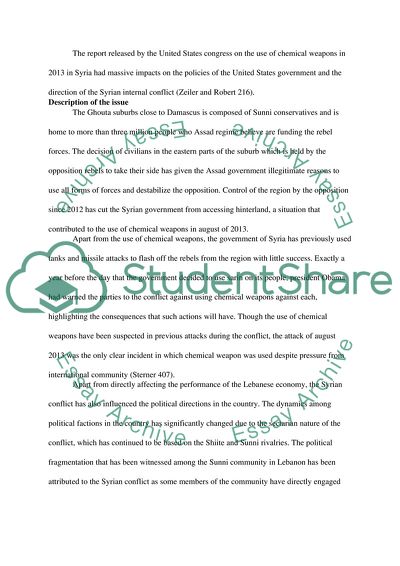Cite this document
(Impact of Congressional Resolutions on Syrian Chemical Attack Case Study Example | Topics and Well Written Essays - 2750 words, n.d.)
Impact of Congressional Resolutions on Syrian Chemical Attack Case Study Example | Topics and Well Written Essays - 2750 words. https://studentshare.org/politics/1865781-impact-of-congressional-resolutions-on-syrian-chemical-attack-in-2013
Impact of Congressional Resolutions on Syrian Chemical Attack Case Study Example | Topics and Well Written Essays - 2750 words. https://studentshare.org/politics/1865781-impact-of-congressional-resolutions-on-syrian-chemical-attack-in-2013
(Impact of Congressional Resolutions on Syrian Chemical Attack Case Study Example | Topics and Well Written Essays - 2750 Words)
Impact of Congressional Resolutions on Syrian Chemical Attack Case Study Example | Topics and Well Written Essays - 2750 Words. https://studentshare.org/politics/1865781-impact-of-congressional-resolutions-on-syrian-chemical-attack-in-2013.
Impact of Congressional Resolutions on Syrian Chemical Attack Case Study Example | Topics and Well Written Essays - 2750 Words. https://studentshare.org/politics/1865781-impact-of-congressional-resolutions-on-syrian-chemical-attack-in-2013.
“Impact of Congressional Resolutions on Syrian Chemical Attack Case Study Example | Topics and Well Written Essays - 2750 Words”. https://studentshare.org/politics/1865781-impact-of-congressional-resolutions-on-syrian-chemical-attack-in-2013.


